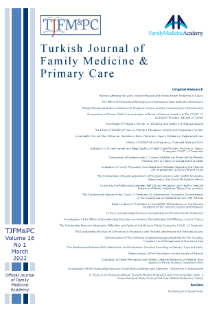Oyo State Students and Malaria Management
Background: Malaria is a vector-borne infectious disease caused by eukaryotic protist of genus Plasmodium and transmitted by female Anopheles mosquitoes. Those living mainly in the world’s poorest countries are at risk of malaria as it is more endemic in the tropical and sub-tropical regions. Malaria spread has been linked to environmental changes, malaria vector dynamics, host immune status and individual or community factors such as the socio-economic status, knowledge of malaria and the protective behaviour. The objective is to assess knowledge, perceptions and practice of malaria management among non-medical students of higher institutions in Oyo State, Nigeria. Methods: An open-ended structured questionnaire was administered consecutively to 1198 consenting non-medical students by interviewer at various higher institutions. The cross-sectional survey questionnaire comprised sections on socio-demographic data, knowledge about causes of malaria and knowledge about malaria management and practice. Results: The mean age (SD) was 21.7 (5.9) years. Five hundred and thirty respondents (44.2%) are male while 668 respondents (55.8%) are female. One thousand and seventy-seven students (89.9%) reported that malaria can be cured. Seventy-four students (6.2%) understand malaria prophylaxis to be a preventive treatment for malaria and 211 students (17.6%) said Artemisinin-based Combination Therapies (ACTs) are the most effective among the drugs they have used to treat malaria. Conclusion: Non-medical students have relatively reasonable knowledge about malaria management and practices, although, certain aspects are still not well understood, probably due to the scope of their educational curricula. Hence, there is need to intensify malaria public enlightenment programs and promote affordable treatment.
___
- Okwa OO, Soremekun BM, Adeseko O, Raheem AM. Artisans and Traders’ knowledge, attitude and practices of malaria control in selected areas of Lagos, Nigeria. Glob Adv Res J Med& Med Sci 2012;1(3):068–074.
- Kinung’hi, SM, Mashauri F, Nwanga JR, Nnko SE, Kaatano GM, Malima R. Knowledge, attitudes and practices about malaria among communities: Comparing epidemics and non-epidemic prone communities of Muleba District, Northwestern Tanzania. BMC Pub Health 2010; 10:395.
- Guidelines for the treatment of malaria, 2nd edition. World Health Organization (WHO). 2010; ISBN-13:978-92-4-154792-5.
- Adegun JA, Adegboyega JA, Awosusi AO. Knowledge and the preventive strategies of malaria among migrant farmers in Ado Ekiti Local Government Area, Nigeria. Am J Sci & Industr Res 2011; ISSN:2153 – 649.
- Mazigo HD, Obasy E, Mauka W, Manyiri P, Zinga M, Kweka HJ, et al. Knowledge, attitudes and practices about malaria abd its control in Rural Northwest Tanzania. Malar Res & Treat 2010; Article ID 794261.
- Forero DA, Chaparro PE, Vallejo AF, Benavides Y, Gutierrez JB, Arevalo-Herrera M, et al. Knowledge, attitudes and practices of malaria in Colombia. Malar J 2014; 13:165.
- Sabin LL, Rizal A, Brooks MI, Singh MP, Tuchman J, Wylie BJ, et al. Attitude, knowledge and practices regarding malaria prevention and treatment among pregnant women in Eastern India. Am J Trop Med Hyg 2010 ;82 (6):1010–1016.
- Sam-Wobo SO, Akinboroye T, Anosike JC, Adewale B. Knowledge and practices on malaria treatment measures among pregnant women in Abeokuta, Nigeria. Tanzan J Health Res 2008;10(4):226-231.
- Iwueze MO, Ezugbo-Nwobi IK, Umeanaeto PU, Egbuche CM, Anaso CI. Knowledge, attitude and management practices on malaria: A case study of Amansea Awka North Local Government Area of Anambra State, Nigeria. The Bioscientist 2013;1(1):32-38.
- Ayeni AO. Malaria morbidity in Akure, Southwest, Nigeria: Temporal observation in a climate change scenario. Trends App Sci Res 2011; 6:488–494.
- Fisher RA. Statistical methods for research workers. Oliver and Boyd 1954; ISBN 0-05-002170-2.
- Daniel WW. Biostatistics: A Foundation for Analysis in the Health Sciences 10th ed. 2013.
- ISSN: 1307-2048
- Yayın Aralığı: Yılda 4 Sayı
- Başlangıç: 2007
- Yayıncı: -
Sayıdaki Diğer Makaleler
Ateş ve Solunum Sıkıntısı ile Başvuran Hastada Konjenital Diyafram Hernisi
Abdulkadir KAYA, Mevlüt DEMİR, Mahmut POLAT
Onur ÖZTÜRK, Mustafa Yasin SELÇUK
Özlem UZUN, Veli YILDIRIM, ERMAN UZUN
YASEMİN DEMİR AVCI, SEBAHAT GÖZÜM, ZEYNEP ÖZER
Fiziksel Bilimlerin Evriminde Başlıca Felsefi ve Metodik Düşünceler
Oyo State Students and Malaria Management
Ibiwumi Nafisat ISOLA, Titilope E OJEDİRAN, Tonubari FADERO
Seyhan HIDIROĞLU, MELDA KARAVUŞ, Özlem TANRIÖVER, TURHAN ŞALVA, NİMET EMEL LÜLECİ, Bülent HEREK
Munchausen Hemoptizi: Nadir Görülen Bir Yapay Bozukluk Çeşidi
